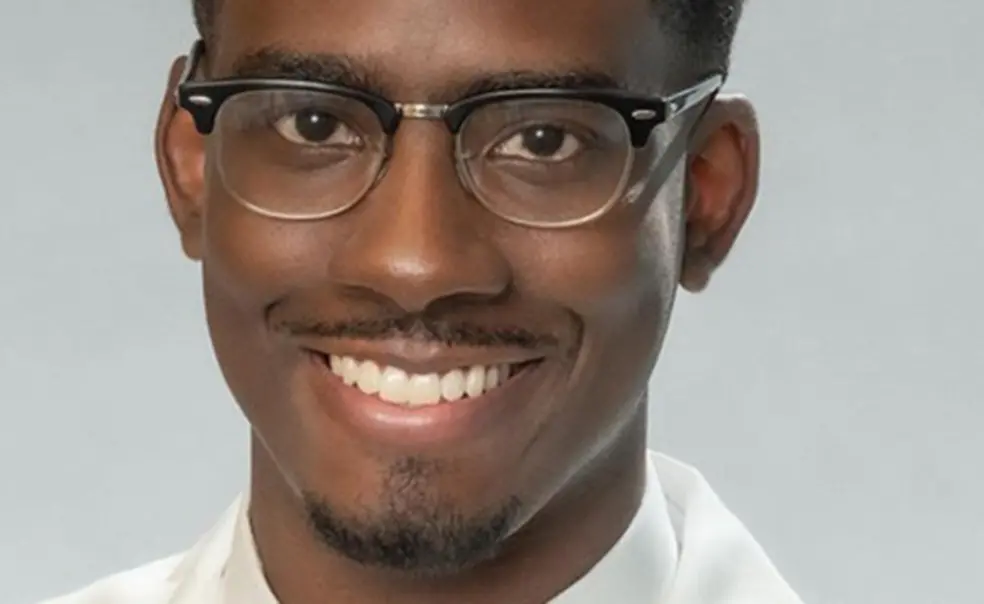Emergency Physician Kimathi Cooper ’09 Fields COVID Questions
‘I feel it is my job to bring evidence-based information to the forefront’
The COVID pandemic erupted just five months after Kimathi (Denrick) Cooper ’09 began a new position in emergency medicine at the Ochsner Medical Center in New Orleans. “The early days were really scary because we had no idea what was going on,” he recalls.
As he saw patients at Ochsner and two community hospitals where he also takes shifts, he found himself also fielding questions about COVID from friends and family. Some suggested he address the queries with an Instagram Live event on their handle, @stoop_55, a gathering place for those interested in the world of Black artists in New York City. The account has over 10,000 followers.
Every week for a year, Cooper spoke about masks, testing, treatments, vaccines, and other topics for the primarily African American audience. He also broadcast the moment when he received the COVID vaccine. He recently resumed making the live videos monthly.
“I feel it is my job to bring evidence-based information to the forefront, and try to meet patients where they are,” he says.
After vaccines were introduced, Cooper was concerned by the hesitancy that sprouted up and has persisted. Louisiana has one of the lowest vaccination rates in the country. “There was a lot of misinformation around the vaccine and distrust of the medical system. Even in my own family, it was a struggle to get some people vaccinated,” he says. “I was frustrated and, to be honest, downright angry about the situation.”
He decided to launch a study of vaccine hesitancy, distributing a survey with 30 questions to patients in the waiting room of his hospital. He found that one of the most common reasons for reluctance was that patients hadn’t talked about the vaccine with their primary-care physician. “Doctors should discuss vaccines face-to-face and not rely on the Internet to educate people,” he says. He is preparing his findings for publication.
Cooper says he chose emergency medicine because he loved “the action and variety. We are with the patients through the most traumatic points of their lives.” As a high school student, he volunteered over the summer at Mercy Medical Center on Long Island. Assigned to the emergency room, his job was to scrub down the gurneys used to wheel in patients.
At Princeton, Cooper juggled his molecular biology major with DJing gigs at dorm parties. He completed his medical training in 2019 after earning his medical degree at Case Western Reserve University in Cleveland and a master’s degree in public health from Columbia University, where he was awarded a fellowship in global emergency medicine.
Today, Cooper is also director of international emergency medicine at Ochsner. His interest in international medicine has taken him to Uganda and Liberia, where he worked in emergency rooms. Once the pandemic subsides, he plans to continue his work examining health disparities in other countries and ways to build emergency medicine capacity.
“It’s been a privilege to work in other countries,” he says. “I want to understand how we can conduct emergency medicine in resource-limited settings with the local culture in mind.”












No responses yet